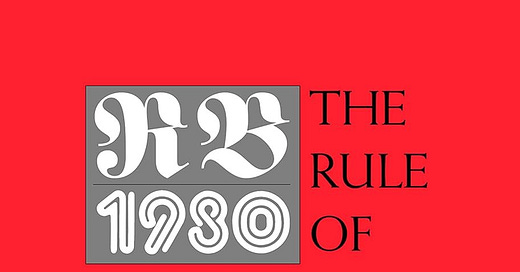If you are looking for the beginning of the study of The Rule of St. Benedict then you can go HERE for a brief introduction. At the bottom of the introduction you will find the links to each section of the study guide as it becomes available. If you would like to see the growing list of book studies available for free on this site you can go HERE. Enjoy!
Virtues/Vices/Great Ideas: (Find them in the Text)
Justice, Humility, Temperance, Prudence, Love vs. Fear, Ignorance, Family
Grammar Questions: (The Information of the Text)
According to Benedict, who should be involved in choosing a new Abbot?
What should be done if a monastic community should “conspire to elect a man who goes along with its own evil ways?”
What should the Abbot “recognize that his goal must be?”
What are three qualities an Abbot must have and three he must not have?
Is the Abbot excused from having to keep the “rule” himself?
What did Benedict say has the tendency to cause problems between an Abbot and a Prior and should therefore be avoided?
In what way did Benedict think it best to manage a monastery, if one could help it, without the aid of a Prior?
What is a Porter and what kind of Monk should hold that role according to Benedict?
What should brothers returning from a journey not “presume” to do?
Who should provide discipline for “boys up to the age of fifteen” within the monastery?
Within the monastic community, whom should the brothers obey?
According to Benedict, for whom was this rule written?
Logic Questions: (Interpreting, Comparing/Contrasting, Reasoning)
Benedict said, concerning choosing a new Abbot, “Goodness of life and wisdom in teaching must be the criteria for choosing the one to be made abbot, even if he is the last in community rank.” Why are these qualities to be preferred over mere seniority (the amount of time spent within the monastery)?
What should we infer about the relationship of Benedictine monasteries to the broader church based upon what is said in Ch. 64?
What did Benedict mean when he described “discretion” as “the mother of the virtues?”
Why did Benedict think that if a Prior must be chosen that it should be done by the Abbot instead of by the Bishop?
Why did Benedict think it was best for monks to not “roam outside” the monastery if it could be helped?
Why should brothers who came back from a journey not talk about their experiences outside of the monastery to anyone?
What did Benedict mean by saying that monks should not presume “to defend another in the monastery or to be his champion?” Defend someone against what?
Why should younger monks obey the older?
Benedict refers to his rule as being for beginners. What then did he consider was fitting for the more advanced?
Rhetoric Questions: (The Analysis of Ideas in the Text)
Benedict advises that Abbots should “strive to be loved rather than feared.” Machiavelli, in his book The Prince, advocates that one should attempt to rule by both fear and love in equal measure. With whom, if either, would you agree? Explain your reasoning as to why you think as you do about this?
Theological Analysis: (Sola Scriptura)
Read Genesis 33, from which Benedict quotes in order to support his position about how an Abbot should lead his flock with care. What is the context of the quote “If I drive my flocks too hard, they will all die in a single day?” Does the greater context seem to relate to Benedict's subject matter? What can we learn about drawing principles from Scripture even when the overall subject matters are different?
Read Romans 12:10. How can you relate the apostles' teaching to what we have read in The Rule of St. Benedict?



